Bhopal’s Water Still Toxic 25 Years After Chemical Disaster
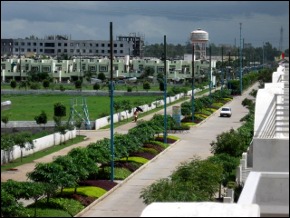 Chemicals used to make pesticides are still leaching into the groundwater and poisoning the drinking water in areas up to 3 kilometers away, two studies found.
Chemicals used to make pesticides are still leaching into the groundwater and poisoning the drinking water in areas up to 3 kilometers away, two studies found.
Two reports published this week found that chemicals released in the 1984 gas explosion that killed thousands continue to contaminate the groundwater in Bhopal, India the Guardian reports.
The groundwater in the areas next to the chemical plant site have concentrations of carbon tetrachloride – a carcinogen that affects the liver, kidneys and central nervous system – that’s 2,400 times above World Health Organization guidelines, according to a report by United Kingdom-based charity Bhopal Medical Appeal (BMA). The levels of another carcinogen, chloroform, were 2 to 3.5 times higher than recommended levels.
The Bhopal Municipal Corporation provides drinking water via pipes and trucks to water tanks in the city, but the supply is insufficient and the system is in poor shape, according to the BMA report. Residents who have private wells or have to rely on public wells when the tank system is not functioning risk drinking contaminated water.
The BMA study found discrepancies in the analysis of the water samples. BMA researchers sent samples to laboratories in Delhi, Switzerland and the U.K. for testing. Results at the Delhi lab showed no detectable amounts of pollutants, while the Swiss and U.K. labs found chemicals at concentrations several thousand times higher than recommended.
“We assume that the analysis by AES Laboratories may not have been conducted properly. This could be either explained by technical problems or it could well be that the laboratory did not take the risk to pass on the results, because of the ongoing political controversy around the Bhopal disaster,” the report states.
Because samples from only two areas were sent to the U.K. lab, the BMA study could not draw broad conclusions about the extent of the groundwater contamination.
However, broader sampling was done in a study by Delhi’s Centre for Science and Environment (CSE). Groundwater is being contaminated up to 3 kilometers away from the accident site because of chemicals in the soil dissolving and being transported in the water, CSE reports. CSE tested the samples in its own laboratory.
“The factory site in Bhopal is leading to chronic toxicity – continuous tiny exposure leading to poisoning of our bodies,” said CSE Director Sunita Narain at a press conference for the report’s release. “This is different from acute poisoning and so the claim that the factory is not dangerous because people can touch the waste is misleading.”
The waste was used as a prop by India’s Environment Minister Jairam Ramesh when he visited the accident site in September 2009. Ramesh picked up a handful of dirt and said, “I’m still alive and not coughing” – a comment that enraged activists pushing the government to clean up the abandoned Union Carbide plant, according to the Times of India.
Water pollution is a public concern in India. A GlobeScan/Circle of Blue survey in August 2009 found that 68 percent of Indian respondents were ‘very concerned’ about water pollution in their country and that water pollution was most serious compared to other environmental problems.
The BMA and CSE studies were released to coincide with the 25th anniversary of the accident at the chemical plant, which exposed nearly 500,000 people to toxic compounds, according to some estimates. The plant was making pesticides that boosted agricultural production in India’s Green Revolution.
Union Carbide paid a settlement of $470 million, and no criminal charges were brought against it. The Madhya Pradesh state government took over responsibility for the site in 1998, and Union Carbide was purchased by Dow Chemical in 2001, according to the BBC.
“The groundwater issue at the Bhopal site is best addressed by the state government of Madhya Pradesh, which owns the site and is responsible for clean-up activities,” according to a Union Carbide statement published by the BBC. “Our understanding is that the central and state governments have plans for site clean-up and we’re hopeful they will follow through with their remediation plans, including addressing concerns about groundwater.”
Source: Guardian, Times of India, BBC
Read more from Circle of Blue about India’s WaterViews
Brett writes about agriculture, energy, infrastructure, and the politics and economics of water in the United States. He also writes the Federal Water Tap, Circle of Blue’s weekly digest of U.S. government water news. He is the winner of two Society of Environmental Journalists reporting awards, one of the top honors in American environmental journalism: first place for explanatory reporting for a series on septic system pollution in the United States(2016) and third place for beat reporting in a small market (2014). He received the Sierra Club’s Distinguished Service Award in 2018. Brett lives in Seattle, where he hikes the mountains and bakes pies. Contact Brett Walton



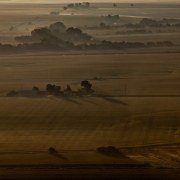

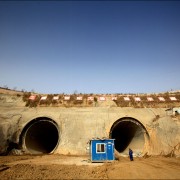

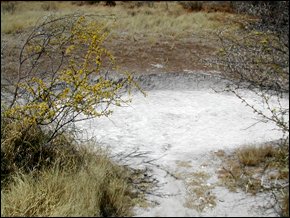
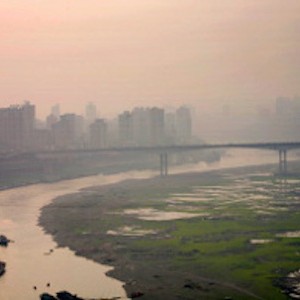
Leave a Reply
Want to join the discussion?Feel free to contribute!